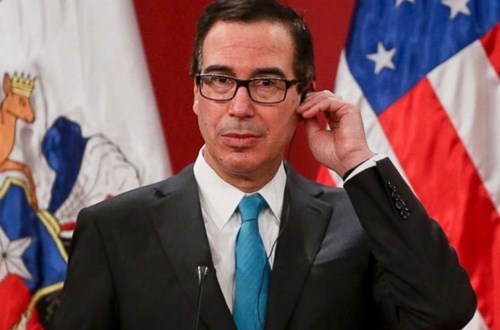Mnuchin said that the Trump administration is now focusing on talks to renegotiate the North American Free Trade Agreement (NAFTA) and that it would be "a bit premature" to review details of what needs to be addressed for the U.S. to reconsider joining the CPTPP.
"But as we accomplish our goals on these other trading relationships, this (CPTPP) is definitely something that we'll consider, and Chile will be a big partner of ours in that at the right time," he said at a press conference following a two-day meeting of G-20 officials in Argentina.
    |
 |
|
U.S. Treasury Secretary Steven T. Mnuchin in a joint press conference at La Moneda presidential palace in Santiago, Chile. Photo: abcnews.go.com |
President Donald Trump withdrew the U.S. from the Trans-Pacific Partnership (TPP) Agreement last year, but the remaining 11 members – Australia, Brunei, Canada, Chile, Japan, Malaysia, Mexico, New Zealand, Peru, Singapore and Vietnam - pressed ahead and signed the renegotiated pact in the Chilean capital of Santiago on March 8 (local time).
The deal aimed at streamlining trade and slashing tariffs was renamed the Comprehensive and Progressive Agreement Trans-Pacific Partnership. It sets high criteria in numerous fields, including labor, the environment, intellectual property, digital economy and cyber security.
Twenty-two provisions of the CPTPP, including sensitive ones related to intellectual property, were suspended or changed in comparison to the TPP.
The pact is expected to facilitate for the promotion of economic growth and job generation, poverty reduction, and improvement of people’s living conditions.
It will be a strong message against protectionism, while proving that an opening economy will benefit member nations, according to experts.
The pact will create one of the world’s largest free trade blocs with a combined market of 463 million people and GDP of around USD 10,000 billion, accounting for 13 percent of the global GDP.
It will bring about important commitments involved in non-tariff barriers, services, investment and other fields.
The pact will come into force 60 days after it is fully ratified by six of the 11 members.
Source: VNA